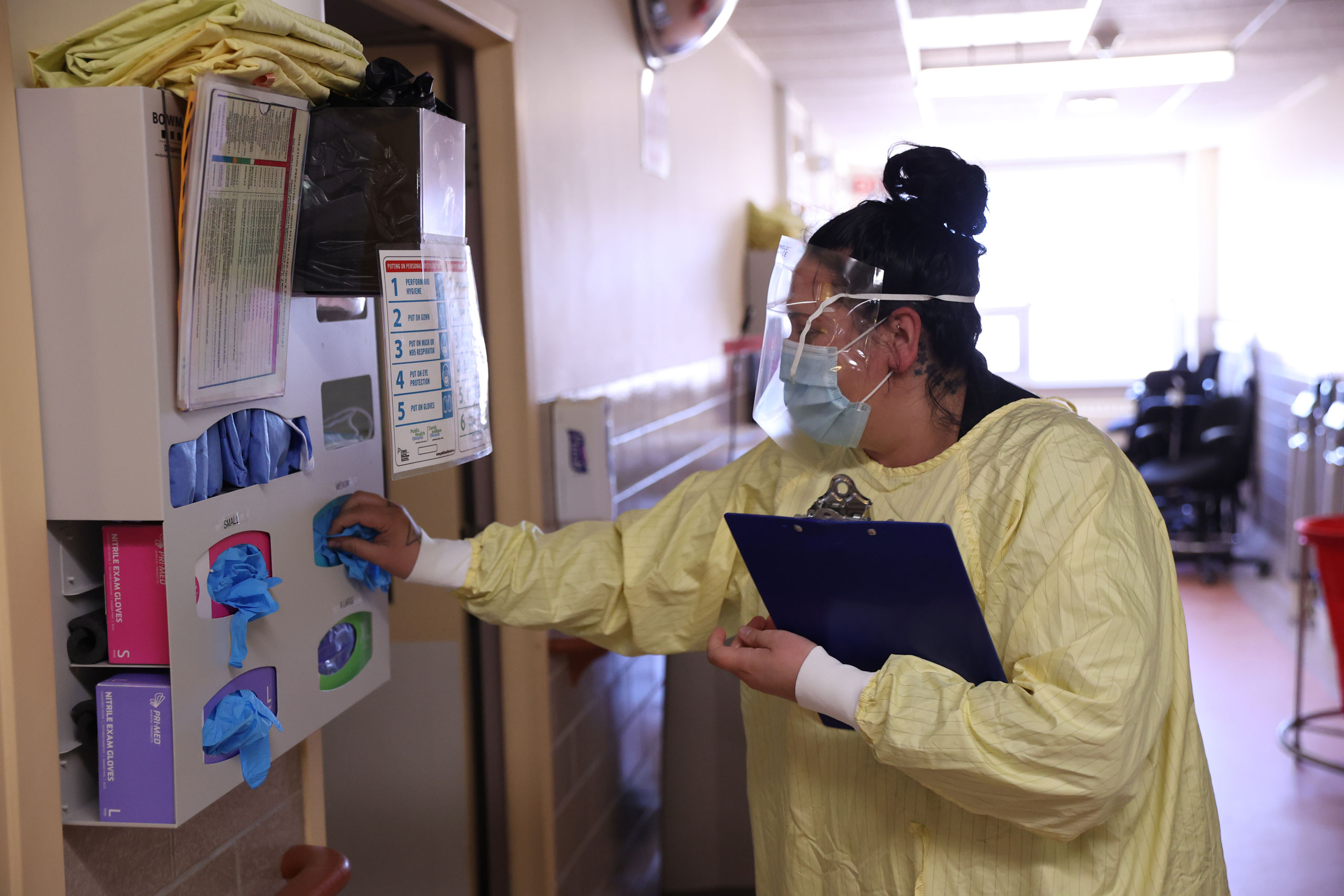
Clostridioides
Rates of C. difficile
It is important to note the C. difficile rates, as in the case for all infections, can fluctuate over the course of a year for a number of reasons. For example, in winter, we admit more patients with respiratory infections. An increase of respiratory infections often results in increased use of antibiotics, a leading factor in new cases of C. difficile.
When SJGHEL experiences cases of C. difficile, they are usually contained in a limited geographic area or unit of our Hospital. Also, compared to the overall number of patients admitted each year, these cases are relatively low in number. SJGHEL follows a number of procedures to control and manage new cases of C. difficile. As described in the provincial best practice standards for managing C. difficile we:
- isolate individuals identified or suspected to have C. difficile, wearing protective equipment to enter their rooms,
- ensure that all patients suspected of having C. difficile are tested,
- ensure effective cleaning of all patient rooms,
- ensure that visitors are instructed in hand washing and other control measures,
- provide education where needed so that all members of our team are up-to-date with current management strategies including importance of hand hygiene, and
- ensure that all patients with C. difficile infection are appropriately treated.
Calculating Rates
The C. difficile infection rate is calculated as a rate per 1,000 patient days. The “total patient days” represents the sum of the number of days during which services were provided to all inpatients during the given time period.
The rate is calculated as follows:
- Number of new hospital-acquired cases of C. difficile at SJGHEL X 1000 / Total number of patient days (for one month)
Frequently Asked Questions – Clostridioides Difficile
Sometimes when patients are admitted to a hospital, they can get infections. These are called hospital-acquired infections. In the case of C. difficile, this may mean that symptoms began 72 hours after admission to the hospital; or that the infection was present at the time of admission but was related to a previous admission to that hospital within the last four weeks.
C. difficile (Clostridioides difficile) is a bacteria. It can be part of the normal bacteria in the large intestine and is one of the many bacteria that can be found in stool (a bowel movement).
C. difficile infection occurs when other good bacteria in the bowel are eliminated or decreased allowing the C. difficile bacteria to grow and produce toxin. The toxin produced can damage the bowel and cause diarrhea. C. difficile is one example of a hospital-acquired infection and is one of the most common infections found in hospitals and long-term care facilities. C. difficile has been a known cause of health care associated diarrhea for about 30 years.
Healthy people are not usually susceptible to C. difficile. Seniors, and people who have other illnesses << or conditions being treated with antibiotics and certain other stomach medications, are at greater risk of an infection from C. difficile.
The usual symptoms are mild but can be severe. Main symptoms are watery diarrhea, fever, abdominal pain or tenderness. In some cases, there may not be diarrhea. Blood may or may not be present in the stools.
C. difficile is the most common cause of hospital associated infectious diarrhea. Since it can be part of the normal bacteria that live in the large intestine, taking antibiotics can change the normal balance of bacteria in your large intestine making it easier for C. difficile to grow and cause an infection. Old age and the presence of other serious illnesses may increase the risk of C. difficile disease.
When a person has C. difficile, the germs in the stool can soil surfaces such as toilets, handles, bedpans, or commode chairs. When touching these items, your hands can become soiled. If you then touch your mouth, you can swallow the germ. Your soiled hands can spread germs that can survive for a long time on other surfaces if not properly cleaned.
The spread of C. difficile occurs due to inadequate hand hygiene and environmental cleaning; therefore, proper control is achieved through consistent hand hygiene and thorough cleaning of the patient environment. Good hand hygiene i.e., washing hands thoroughly and often is the single-most effective way to prevent the spread of infectious diseases like C. difficile.
C. difficile is usually treated by stopping the current antibiotic. You will be started on a new antibiotic. This antibiotic is specific in working against C. difficile.
